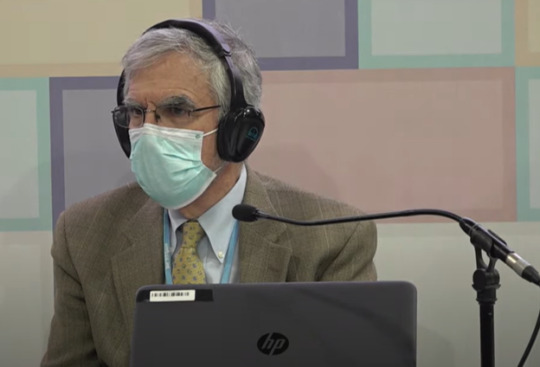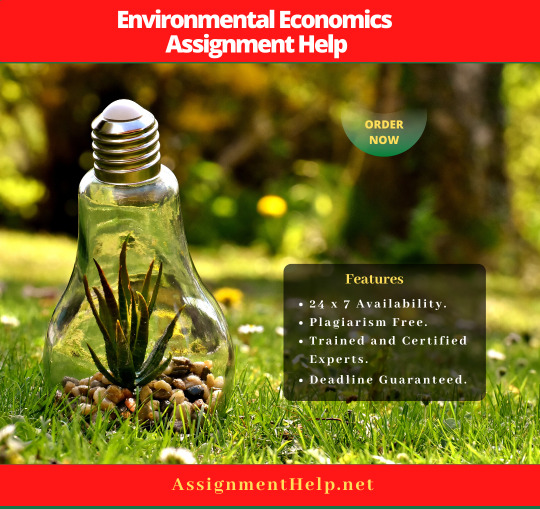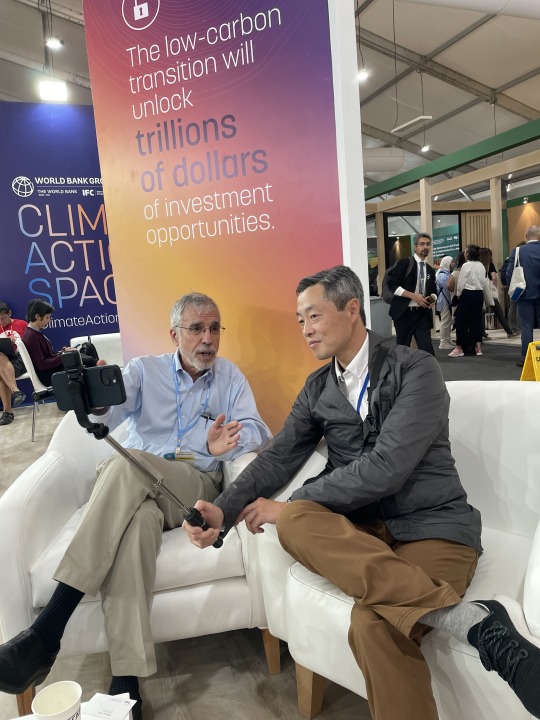#EnvironmentalEconomics
Explore tagged Tumblr posts
Text
"What ended up coming out of this COP was a kind of kitchen sink approach where developed countries said, 'we will take the lead in trying to get together around 300 billion a year and not starting right now but starting a decade from now.' And the additional trillion will be made up by a huge variety of sources in the private sector, in multilateral development banks, carbon markets, you name it, basically everything else."
--Max Bearak, energy politics and global climate negotiations reporter for the New York Times in a podcast conversation with HPCA Director Robert Stavins.
#cop29#climatepolicy#cop29summit#climatesummit#environmentaleconomics#harvardprojectonclimateagreements#cop29climatesummit#unfccc#unclimatesummit#cop29baku#energypolicy#energypolitics#SoundCloud
1 note
·
View note
Link
#escapethemeatrix#stuartwaldner#books#bookreview#bookreviewer#conservation#environmentaleconomics#environmentalscience#recycling#sustainability#wellness
0 notes
Text
Tweeted
Participants needed for online survey! Topic: "Assessing and predicting consumer demand for electric vehicles" https://t.co/Rrq0UjXKth via @SurveyCircle #ConsumerBehaviour #ConsumerDemand #ElectricVehicles #EnvironmentalEconomics #survey #surveycircle https://t.co/D9zIUoOZu6
— Daily Research @SurveyCircle (@daily_research) Mar 29, 2023
0 notes
Quote
“The choice between [carbon taxes and cap-and-trade] is less important than the actual design of the one that we choose to use.”
Robert Stavins, speaking in the China Pavilion, Day 8, COP27, Sharm El Sheikh, Egypt
#COP27#COP 27#Climate Policy#EmissionsTrading#Global Climate Policy#Emissions Reductions#CO2Reductions#EnvironmentalEconomics
0 notes
Link
0 notes
Quote
[Jeju Island is] taking action immediately with policies, with technologies, with real implementation. And that’s why other parts of the world – the mayor of New York City, the mayor of Paris, the local officials who have been making impressive statements about their targets and objectives for the long term – can look to Jeju Island to actually see what they can do tomorrow

-- HPCA Director Robert Stavins discussing Jeju Island climate measures at COP26 panel discussion at the Republic of Korea Pavilion, November 8, 2021
#COP26#Jeju Island#JejuIsland#ClimatePolicy#Climate Policy#Global Climate Conference#Global Climate Change Policy#Environmental Policy#EnvironmentalEconomics#Environmental Economics
1 note
·
View note
Photo

Amazed the nerdlets with this sweet blanket fort so that I can study today. Now back to studying derivatives and elasticity of supply and demand. #parentingwin #momlife #studentmomlife #environmentaleconomics #saturdays
1 note
·
View note
Link

0 notes
Text

Read Robert Stavins' latest blog about COP 29: https://bit.ly/3Zcxm2d.
#cop29#cop29summit#climatesummit#cop29climatesummit#unfccc#climatepolicy#unclimatesummit#cop29baku#environmentaleconomics#harvardprojectonclimateagreements
0 notes
Link
"By encouraging value creation rather than distributional conflict, competitive markets produced more of what people want (goods and services) from less of what they don’t want (environmental degradation, for example)"
1 note
·
View note
Text
Participants needed for online survey! Topic: "Consumer reactions to price incentive on takeaway beverage cups" https://t.co/EWa11dnTjz via @SurveyCircle#ConsumerBehavior #EnvironmentalEconomics #PlasticPollution #taxation #survey #surveycircle pic.twitter.com/6c3EKH57ET
— Daily Research (@daily_research) November 1, 2019
0 notes
Photo

Prof. Stavins meeting with Michael Jung, MPP 2002, at COP27.
#COP27#COP-27#Climate Policy#ClimatePolicy#Climate Change Policy#EnvironmentalEconomics#Environmental Economics
0 notes
Link
0 notes
Text
HPCA Director Robert Stavins Offers Perspectives on Jeju Island Climate Measures and Article 6 at COP26 Panel Discussion
Jeju Island, the 707 square mile self-governing province off the south coast of South Korea which is making ambitious strides toward its goal of becoming carbon neutral by 2030, serves as a potential important demonstration for other sub-national entities that seek to reduce their global climate footprint. That was one perspective voiced Monday (November 11) by Robert Stavins, director of the Harvard Project of Climate Agreements, during an insightful panel discussion hosted at the Republic of Korea Pavilion at the 26th Conference of the Parties (COP26) to the United Nations Framework Convention on Climate Change (UNFCCC).
Stavins, who served as senior advisor to the Jeju Carbon Free Island policy initiative, highlighted the island government’s climate efforts to date and its plans moving forward. Jeju Province currently ranks first for renewable energy and electric vehicles (EVs) among the 17 major cities and provinces in the country. Its installed renewable energy capacity is already greater than 30 percent, and there are nearly 24,000 registered EVs on the island. In coming years, solar photovoltaics (PV) and offshore wind installations are expected to dramatically increase renewable energy output, and the number of EVs on the island is expected to greatly increase when a ban on internal combustion engines takes effect in 2030.
“So much of what we hear is just talk – targets for the year 2050. It’s easy to state a target that is that far in the future. A target for 2030 requires more credibility, but even more than that, [Jeju Island is] taking action immediately with policies, with technologies, with real implementation,” Stavins remarked. “And that’s why other parts of the world – the mayor of New York City, the mayor of Paris, the local officials who have been making impressive statements about their targets and objectives for the long term – can look to Jeju Island to actually see what they can do tomorrow.”
Ian de Cruz, the global director for Partnering for Green Growth and Global Goals 2030 (P4G), an organization pioneering market-based partnerships to build sustainable and resilient economies, cited the tremendous potential to replicate and scale up the innovative climate policies being implemented on Jeju Island to other parts of the world.
“How do we take the Jeju Island example in the Republic of Korea potentially into some our other partner countries, whether that’s in Bangladesh…Colombia…Ethiopia, as an example? Can we reduce emissions, impact the number of people who can get access to things like mobility, energy, water, and also leverage the significant scaling of private sector investment? And not only do it at the national level, but through sub-national and city-to-city cooperation. That’s the challenge, but that’s [also] the opportunity,” de Cruz said.
De Cruz emphasized the need to scale up cutting-edge innovation taking place in Korea to developing countries, in Africa and elsewhere, such that it aligns with the host country’s priorities, ultimately creating commercial and investable models.
“Working with these developing and emerging economies together in terms of how you can localize that experience,” he said. “Building jobs and industries in those countries with them is very important.”
Stavins commented on how sub-national jurisdictions like Jeju Island might take advantage of the cooperative mechanisms established in Article 6 of the Paris Agreement, working across borders to implement their nationally determined contributions (NDCs) and achieving emission reduction goals.
“National and sub-national governments can form linkages internationally across borders so that one party can facilitate – through finance or other means – emissions reductions by other parties, because it might be less costly. So that brings down overall cost, and lowering cost facilitates greater ambition,” Stavins stated. “Once those linkages are in place, a company in Seoul, in principle, can get involved in an exchange with a company in Beijing, San Francisco, or Glasgow, [or] anywhere else, under the linkage that’s been established.”
A somewhat critical assessment of the Jeju Island climate vision was delivered by Joojin Kim, managing director and founder of Solutions for Our Climate, a Seoul-based climate advocacy group. The island, he said, is “a very important battleground between fossil fuel generation and renewables,” but profit margins, he argued, are sometimes driving climate decisions, slowing the pace of the transition to renewable power sources.
“Who will lose money if the renewable power plants are curtailed less, and fossil fuel generators are curtailed more? The answer is pretty obvious,” he said. “The gas power plants and diesel power plants down there are owned 100 percent by Korea Electric Power Corporation, our only national-owned utility,…[and it] will lose money.”
Koo Man-sub, the Acting Governor of Jeju Province, delivered closing remarks at the session: “As we embark on the implementation of the Paris Agreement this year, cooperation and partnership between and among nations and cities are imperative. This is our last chance to save the earth. To tackle climate change, cities need to come forward and take action. We need to act together for our families and our children,” he stated.
Yoon Hyeong-seok, the director of Jeju’s Future Strategy Bureau, and Anna Lising, senior climate advisor to Washington State Governor Jay Inslee, also participated in the discussion, which was moderated by Kim Sang-Hyup, president of the Jeju Institute and chair of the Jeju Green Big Bang Committee.
#COP26#Climate Policy#Climate Change Policy#ClimatePolicy#ClimateChangePolicy#Jeju Island#JejuIsland#Environmental Economics#EnvironmentalEconomics#Global Climate Change Conference#Climate Change Conference#GlobalClimateConference#Global Climate Conference
1 note
·
View note
Photo

Getting a head start on next semester's reading #uottawa #studentmomlife #onvacation #economics #environmentaleconomics #books #philosophy #warmsocks #whyisncsocold (at Mount Airy, North Carolina)
#studentmomlife#environmentaleconomics#philosophy#books#whyisncsocold#uottawa#economics#onvacation#warmsocks
0 notes
Text
“There's been this surge of industrial policy, especially in advanced economies just since 2021. I think there's been like 2,500 new industrial policies, many, if not the vast majority are trade distortive. The reason is because they contain trade-related climate measures like conditional subsidies with localization requirements, local content requirements, export controls, domestic and export subsidies, and so on and so forth. This interferes with the trade system." --Michael Mehling, Professor of Law at Strathclyde University and Deputy Director, Center for Energy and Environmental Policy Research, MIT, speaking at the HPCA Side Event at COP29, 'Industrial Policy, Trade, and the Political Economy of Decarbonization,' Nov. 14, 2024. Read more about the discussion: http://bit.ly/4hSSLpO.
#cop29#cop29summit#climatesummit#climatepolicy#environmentaleconomics#unfccc#unclimatesummit#cop29baku#cop29climatesummit#harvardprojectonclimateagreements
0 notes